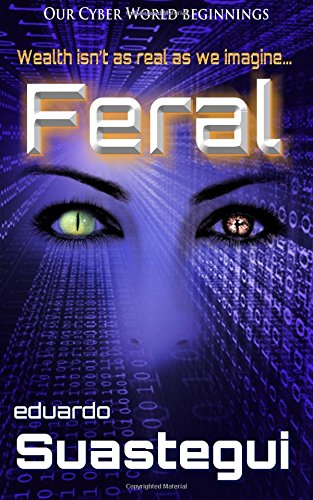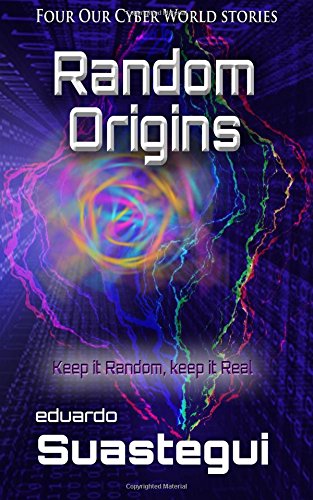Review: Feral and Random Origins by Eduardo Suastegui
I have just enough background in writing code (at the hardware, firmware and macro-programming levels) to get the gist of what Suastegui's hacker protagonists are doing. You don't need much: the author gives a pretty clear description of each neat trick and technique without overwhelming the narrative in tech-speak. It makes me wonder what he does for a living.
No, I don't suspect he himself is a cyber-spy. I'll bet he's given more than one technical, security-focused briefing to a crowd of bored bureaucrats or government officials. There's enough authenticity in the "not another meeting" angst of his main characters to reveal his personal experience with the beast of the boardroom.
Unbridled Cyber Terror
In the dark old days of the Cold War, spies were in the cold, or out of it. In our cyber-saturated present, however, they can be tame, domesticated hackers whose talents are reined in by the federal agencies that employ them. Sometimes, they slip their bridles and run wild.
Feral is an exciting prequel to the tense action of Dead Beef, the first novel in Suastegui's Our Cyber World thrillers. It spins the hints from Dead Beef about Martin Spencer's initial meeting with his wife Cynthia, and the near-disaster of his hacking battle against the wild agent code-named "Feral" into a nail-biting chase through program codes and physical landscapes.
Glimpses of Chaos
The short stories in this collection tell the backstories of two characters that will appear in (chronologically) later novels, Julian and Bogdan. Far more interesting to me, though, is the third "character," a style of coding that is either stochastic or programmatic.
Stochastic, or random, events are typical of nature, and Julian embraces the random style of the universe, as he observes it. His fatalistic acceptance of disaster or triumph as simply what happens—in other words, not under our control—is a direct forerunner of his actions in Dead Beef. Reading the prequel stories after that novel makes it a lot more obvious why Julian makes the choices he does in that later conflict.
Bogdan's approach is the opposite of fatalistic, so the complex programmatic clockworks of his code are perfectly understandable. Like Martin Spencer, whose code Julian would later stigmatize as "a calculator," Bogdan tries to tie down every possible outcome and its solution. Only his chess-master brilliance makes it remotely possible he might succeed.
These novels can be read either before or after their sequel, which is a hard feat to accomplish. Suastegui has done it, though. Bravo!


No comments:
Post a Comment